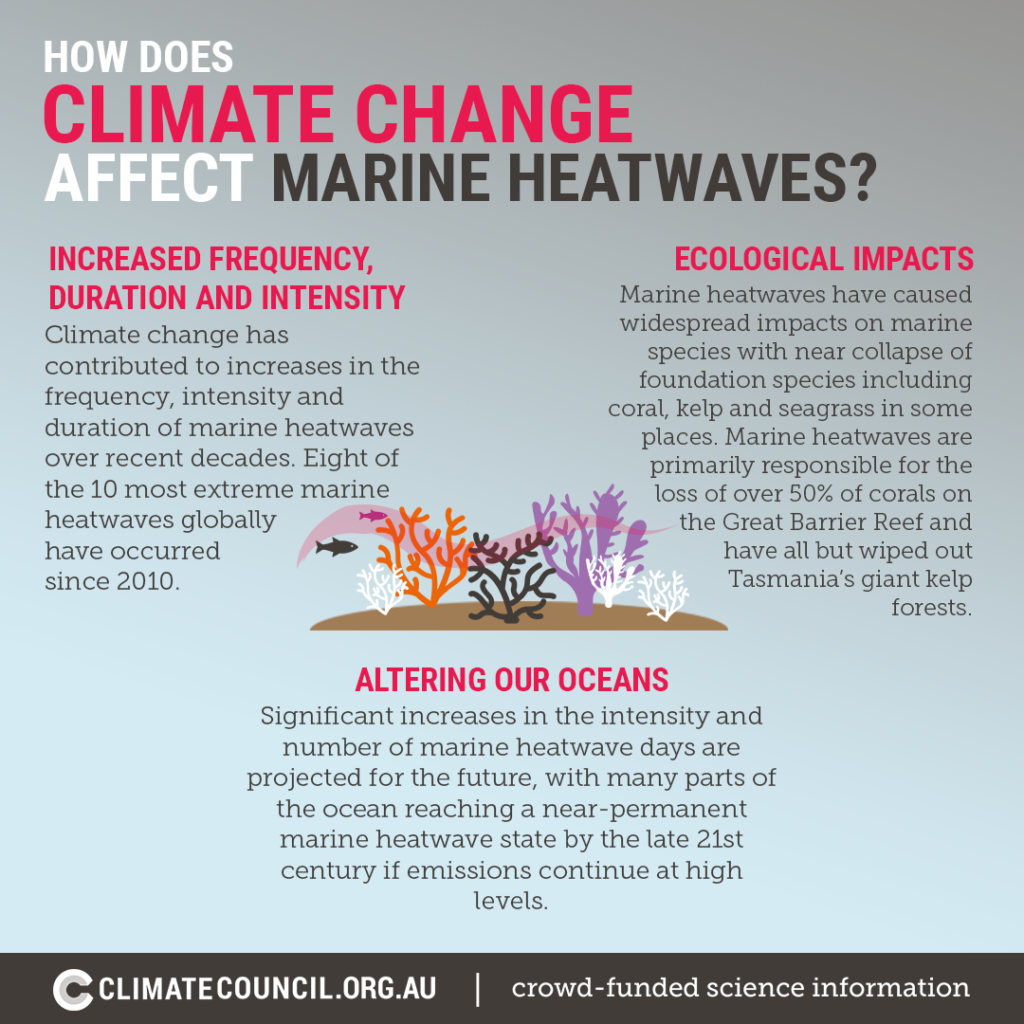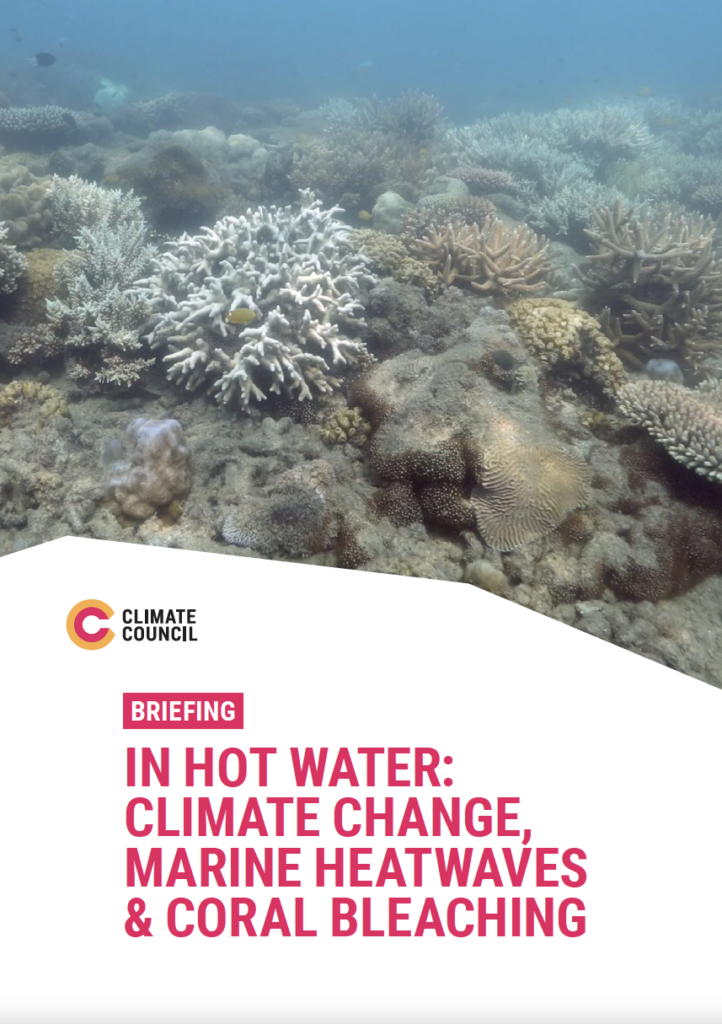2021 was the warmest year on record for the world’s oceans. Climate change is warming the ocean, leading to more frequent and severe marine heatwaves. Over the past year, excess heat absorbed by the ocean was equivalent to seven Hiroshima atomic bombs detonating every second.
In just the last six years, marine heatwaves have caused three mass bleaching events on the Reef. If climate change continues unabated, the Reef could face bleaching conditions every year after 2044. These conditions would effectively destroy the Reef, and most shallow water tropical reefs worldwide.
More frequent and severe marine heatwaves also have devastating consequences for other marine ecosystems. Over the past decade, marine heatwaves have caused mass deaths of key species along 45 percent of Australia’s coastline – including corals, kelp, seagrasses and mangroves.
But every fraction of a degree of warming avoided will be measured in saved ecosystems. Cutting global emissions by at least 50 percent this decade is key to the survival of Australia’s ocean wonders, which are of natural, social, cultural, and international significance.
After a summer of marine heatwaves, the Reef is again at risk of mass bleaching. Sea surface temperatures are above average across most of the Reef – up to 3°C warmer in the central parts of the Reef. Low to moderate bleaching is already occurring, with the most impacted corals near Townsville.
To avoid a climate catastrophe and best protect the Great Barrier Reef, governments must commit to immediate, deep and sustained emissions reductions this decade.
A net zero target by 2050 – setting aside the fact that the Liberal-National Government does not have a credible plan to achieve it – is not enough. The Climate Council is calling for Australia to reduce its emissions by 75% below 2005 levels by 2030. As a first step, the Federal Government should match key allies and commit to halving emissions this decade.


